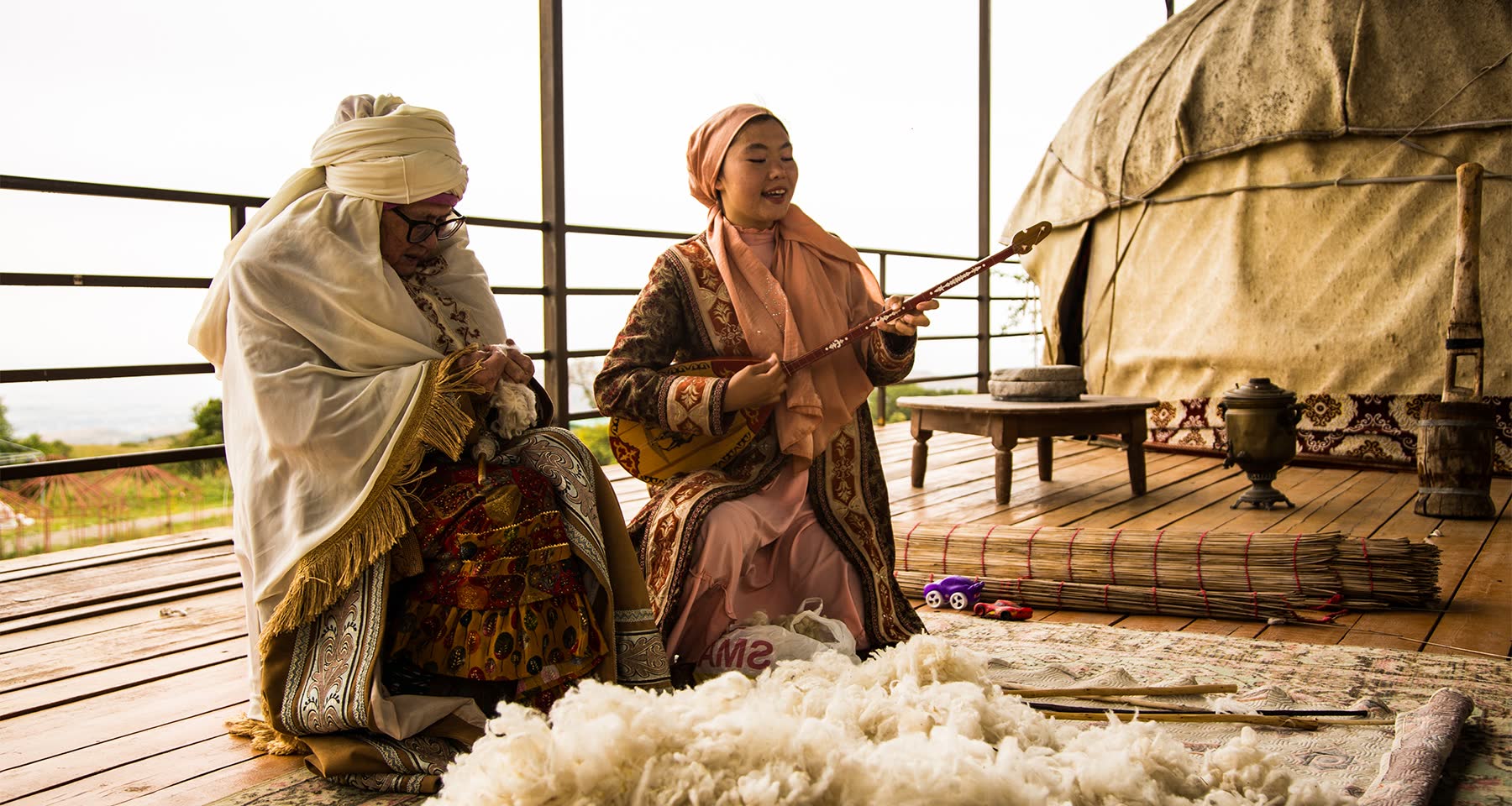The Culture of Kazakh
The culture of Kazakhstan is rich and diverse, influenced by the country's nomadic heritage, as well as the various ethnic groups that have lived in the region.
Here are some key aspects of Kazakh culture:

Nomadic Heritage: Kazakhstan has a long history of nomadic culture, and this heritage continues to influence many aspects of Kazakh life. The traditional yurt, a portable dwelling, is a symbol of nomadic culture and is still used for various purposes.
Language: The official language of Kazakhstan is Kazakh, a Turkic language. Russian is also widely spoken, and many Kazakhs are bilingual.
Music and Dance: Traditional Kazakh music features instruments like the dombra (a string instrument) and kobyz (a two-stringed violin). Kazakh folk songs often celebrate the beauty of the steppe. Traditional dances, such as the "Kara Zhorga" and the "Beshbarmak," are an integral part of Kazakh culture.
Horse Culture: Horses have been central to Kazakh nomadic life for centuries. Horseback riding and equestrian sports, such as kokpar (a form of horse polo), are popular. The Kazakh tradition of horse meat dishes, like "beshbarmak," remains a significant part of the cuisine.
Hospitality: Kazakh culture places a high value on hospitality. Guests are often greeted with great warmth and offered food and drink. It is customary to bring small gifts when visiting someone's home.
Cuisine: Traditional Kazakh cuisine features dishes made from livestock, such as lamb, beef, and horse meat. Beshbarmak, a dish made with boiled meat and noodles, is a national favorite. Milk products like kumis (fermented mare's milk) and shubat (fermented camel's milk) are also consumed.
Festivals: The country celebrates various cultural festivals, including Nauryz Meyrami, the Kazakh New Year, and Kurban Ait, a holiday marking the end of Ramadan. These festivals feature traditional games, music, dance, and feasts.
Art and Craftsmanship: Traditional Kazakh art includes intricate embroidery, carpet weaving, and felt-making. These crafts are used to decorate yurts and clothing.
Religion: Islam is the predominant religion in Kazakhstan, with the majority of the population being Sunni Muslims. There are also minority communities of Christians, Buddhists, and followers of other religions.
Modernization: As Kazakhstan has developed rapidly in recent decades, it has embraced modernity while preserving its cultural heritage. Urban areas like Almaty and Astana are vibrant and cosmopolitan, with a blend of modern architecture and traditional influences.
Kazakhstan's culture is a unique blend of its nomadic past, Islamic traditions, and modern influences. It reflects the country's diverse history and the resilience of its people in preserving their cultural identity while embracing the opportunities of the present.